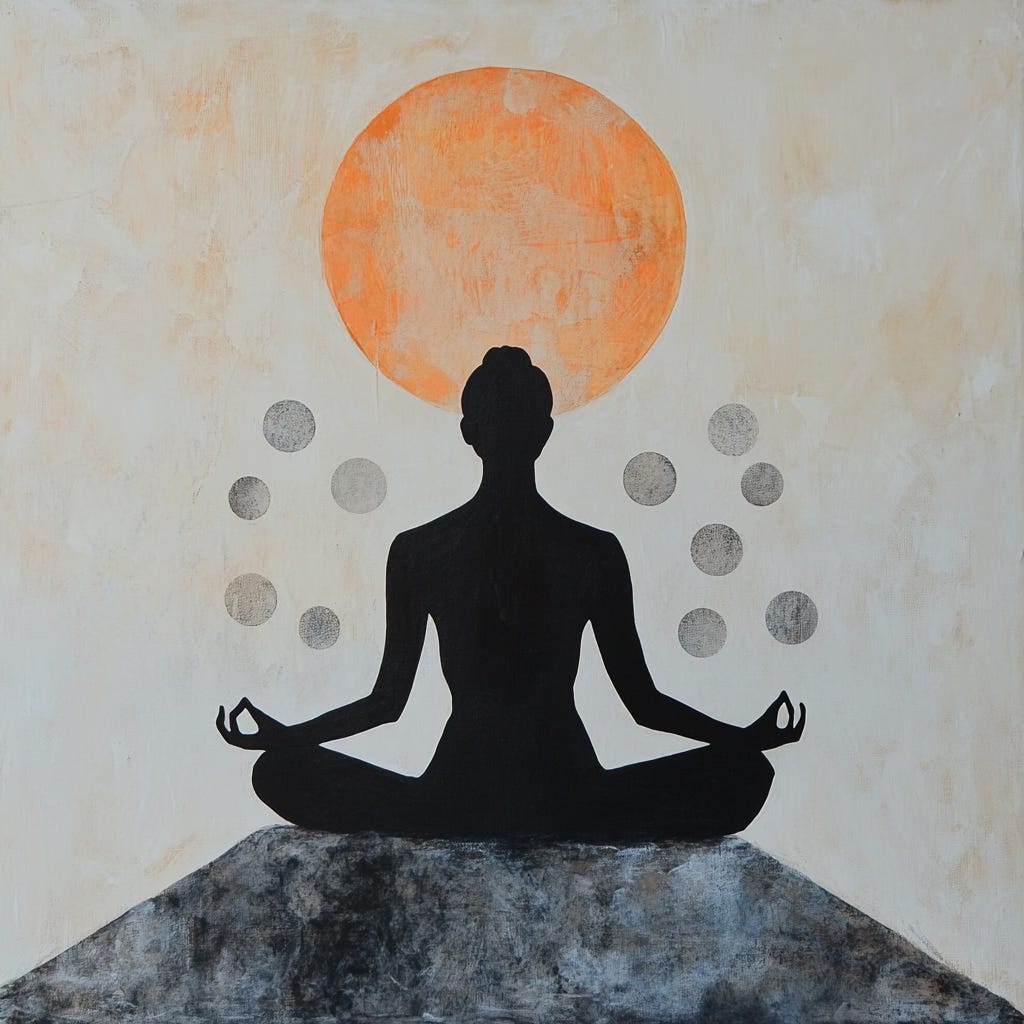My Morning Routine - Morning Thinking Practice
How I adopted daily thinking practice by Vasili Shinkarenka
Today’s post will be related to something else than B2B SaaS-related topic but I couldn’t help myself and decided to share the morning practice I’ve adopted and have been using for the past 2 months.
A few years ago I’ve subscribed to Vasili’s newsletter and after a long period of silence, I received a new post from him on July 15. It was called “Morning Thinking Practice”. Because I’m sort of a productivity freak no wonder I decided to read it. Because it made a sizable impact on my life even in short term I want to share it with you as well!
Below I’ll write about how I adopted it and share some reflections but I urge you to read the post from Vasili as well.
I typically get up at 6 am, dress up, have a glass of cold water and immediately go for a walk. My goal is to wake up my (1) mind and (2) body for the day ahead. I walk roughly for 30 mins or ~2kms. That’s similar to what Vasili has in his routine as well, check.
Once I get back I brew my black coffee, grab my diary and a pen and start the thinking practice. I’ve found it much more helpful and I’m less distracted when I use a pen and paper for writing instead of a laptop. Oh and I don’t use my phone when I get up and throughout the morning routine at all so I don’t end up checking emails or messengers and don't get disrupted by things that don’t matter. Given the morning is the time when my willpower is the weakest I don’t touch my phone at all and use the smartwatch for the alarm clock. You can buy a physical alarm clock if you’re not into smartwatches ;).
If my partner and I were lucky to buy some Pastel de nata (which is a Portuguese famous pastry) the previous day I will likely have one :)
Otherwise, I grab my pen, and my diary and start the thinking practice typically reflecting on the following questions:
Check-in: how do I feel about this morning both body- and mind-wise? I also put a 5-star score each day for this question to track at scale and be able to understand the root causes when I’m not feeling amazing.
Some reflection on yesterday which acts like a self-therapy: what went great and what didn’t, ranging from questions like “why didn’t that conversation go well, how could I be more efficient to achieve the goal next time” to “I couldn’t help myself not to eat the whole can of Pringles”.
As Vasili suggest:
I perceive my faulty actions as wrong outputs of my neural network and try to act as a programmer who, faced with bugs in his software, would get curious and investigate the root cause. (Incidentally, hardware-software-programmer is a good analogy for brain-mind-consciousness.) If I did something great yesterday, I would praise myself!
That’s exactly the point, the goal is to do incremental improvements each day and I think I don’t need to remind you that improving each day by 1% will yield you 37.78 times results in 1 year.
some recall and/or synthesis of recently learned information: it could be a summary of the article I’ve read the other day, a chapter of the book or learning I’ve got recently.
my thoughts related to all sorts of things, could be technical (“How does company culture influence its performance?”) or more philosophical (“what is the role of government in modern society, do we need government in its current form and how could a new ‘system’ look like?”).
I’ve found this question very interesting and mind-bending as long as you can prepare interesting topics to explore beforehand, for some reason I rarely can come up with a deep topic at 6 am :).
Work or life-related problem-solving. Could be questions like “What do I know about the vendor and what they care about so I negotiate a deal on the meeting with them” or brainstorming potential vertical niches for a startup idea or even writing an email text by hand that’s of high importance where I only have 1 shot.
When I started using this approach I should admit I had quite a euphoria, it felt amazing to spend 30-50 mins alone 1-1 with my mind exploring my feelings and also doing various mental exercises. I was also pitching this thinking practice to my friends a lot :). The feeling of novelty disappeared in 2 weeks but I also found it to be a great tool for concentration and kicking off my day and giving me the energy and focus to work on the most important thing I have for the day.
Also, the key thing is not to get frustrated when you don’t have things to think about. You shouldn’t feel that you must think through all those 5 items. Sometimes I use all of them, something I use only 3. I always use the first 2 questions but the rest are more flexible. This freedom, I think, might be the reason why they work so well as they’re more of a free-flow exploration into whatever is on my mind.
The last important benefit I’ve got from this practice is a new connection ;). After using the practice for a few weeks and realizing its tremendous value I decided to reach out to Vasili and thank him for sharing the routing and making my days better. He gave me his Telegram and we hopped on the call and what should have been a 30-minute conversation turned into 3h chat. But that’s another story ;).



